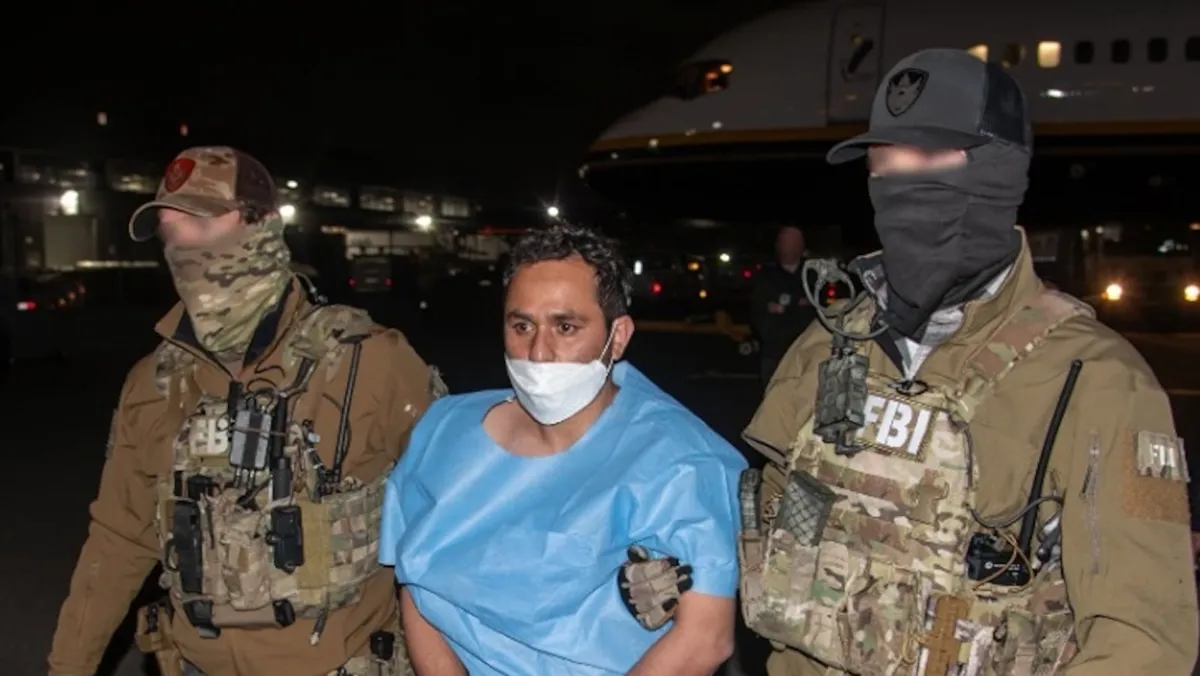
An alleged key figure in the deadly August 2021 suicide bombing targeting U.S. soldiers at Abbey Gate during the chaotic withdrawal from Afghanistan has made his first appearance in federal court in Virginia. Mohammad Sharifullah, identified by the Department of Justice as an operative of ISIS-K, was extradited to the United States and appeared in Alexandria federal court on Wednesday afternoon. He faces serious charges for allegedly orchestrating the attack that resulted in the deaths of 13 U.S. military servicemembers and approximately 160 civilians.
During the brief hearing, Sharifullah spoke softly, responding to a magistrate judge's inquiries about his understanding of his constitutional rights. Using an interpreter, he acknowledged the federal charge of conspiring to provide material support to a terrorist group, a charge that carries a maximum sentence of life imprisonment if convicted. The magistrate judge ordered a detention and preliminary hearing scheduled for the upcoming Monday, as the government seeks to retain his detention pending trial.
Sharifullah was recently captured by Pakistani special forces along the border between Pakistan and Afghanistan, according to an intelligence official familiar with the operation. Following his capture, he was extradited to the U.S. on Tuesday night, as confirmed by FBI Director Kash Patel. In a critical interview with FBI agents on Sunday at an undisclosed location, Sharifullah allegedly confessed to his involvement in three significant terror attacks, including the one at Abbey Gate, as outlined in a criminal complaint.
The criminal complaint details Sharifullah's alleged role in planning the Abbey Gate operation, where he conducted surveillance on a route for the attacker near the Hamid Karzai International Airport. Additionally, he is accused of being involved in a suicide bombing targeting the U.S. embassy in Kabul in June 2016, which tragically killed 10 embassy guards and injured other soldiers near the Canadian embassy. It is reported that Sharifullah prepared the suicide bomber and facilitated their transport to the attack site in Kabul, where an improvised explosive device was detonated.
Sharifullah's alleged connections extend beyond the Abbey Gate incident. He reportedly admitted to participating in an ISIS-K attack on a concert venue near Moscow in March 2024, which resulted in the deaths of over 130 individuals. According to the Pakistani intelligence official, Sharifullah has been involved in more than 30 terror attacks throughout his career. Notably, he was imprisoned in Afghanistan from 2016 to 2021 but was released by the Taliban during the final days of the Afghan republic's collapse.
The developments surrounding Mohammad Sharifullah's extradition and the charges he faces highlight the ongoing threats posed by terrorist organizations like ISIS-K and the complexities involved in international law enforcement and counterterrorism efforts.